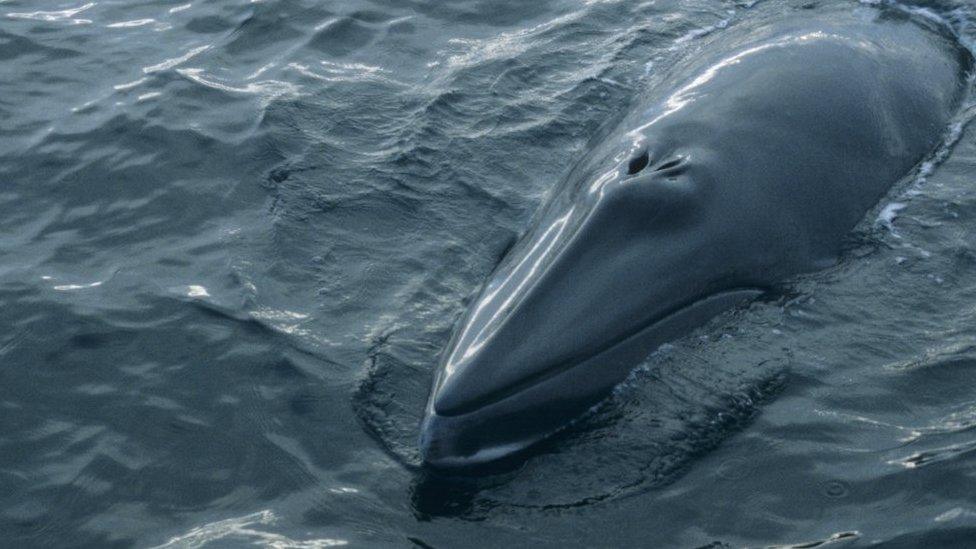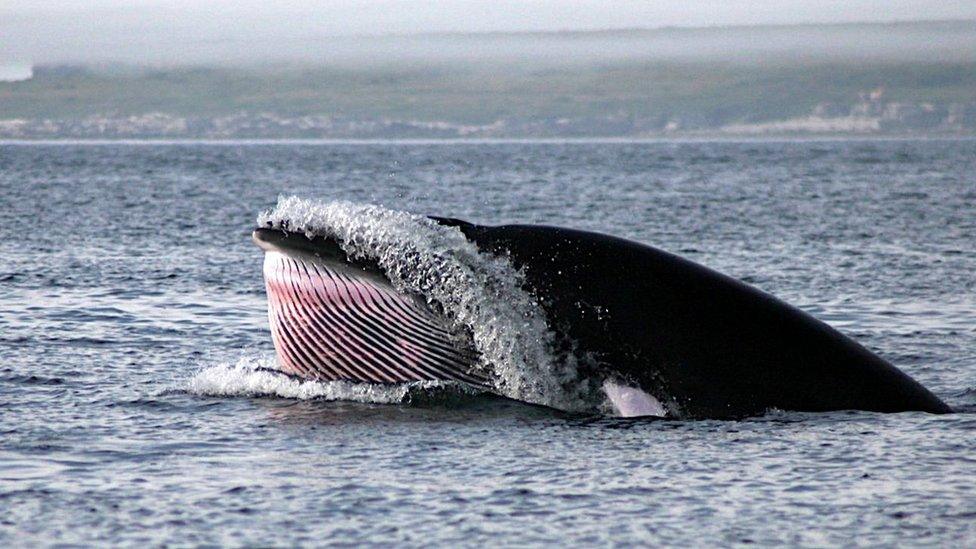Minke whale pulse trains recorded off east Scotland
- Published

Minke whales' pulse trains were recorded by an array of recorders
Minke whales have been recorded off Scotland's east coast for the first time, scientists have said.
Noises the animals make called pulse trains were detected in recordings taken by a number of underwater sound recorders.
The devices are installed off the coasts of the Highlands, Aberdeenshire, Angus and Fife.
The sound recorders are primarily used for monitoring east Scotland's population of bottlenose dolphins.
However, the lower frequency pulse trains were detected using software developed by Dr Denise Risch, an ecologist at Scottish Association for Marine Science (SAMS), and her colleagues from New York's Cornell University.
International research
Sounds made by minke whales were found in two years' worth of recordings collected by Marine Scotland Science's (MSS) East Coast Marine Mammal Acoustic Study.
Their recorders are installed off Helmsdale in Sutherland, Fraserburgh in Aberdeenshire, Arbroath in Angus and St Andrews in Fife.
The research has been published in the journal Scientific Reports.

Minke whale behaviour remains to be fully understood say scientists
Dr Risch said: "Although minke whales are often seen around Scotland, they have so far rarely been recorded acoustically.
"Their calls are produced at lower frequencies compared to those of other species like dolphins, which makes them difficult to record from moving platforms, such as boats.
"By using static underwater recorders, the MSS team were able to record minke whale sounds near to the Scottish east coast, which is really exciting."
Dr Risch added: "To get a better idea of how animals use these sounds and how we can use them to assess populations, we need more year-round recordings further from shore because low frequencies do not travel well in shallow waters."
Migration routes
SAMS, which is based in Dunstaffnage near Oban, now plans to find minke whale pulse trains in recordings taken off Scotland's west coast.
Environment Secretary Roseanna Cunningham said: "This exciting study highlights how we might use acoustic monitoring to study the presence and distribution of whales in Scottish waters.
"It is also testament to the excellent collaboration between Marine Scotland Science and SAMS that builds on international research in the US."
Minke whales can grow to up to 10m (33ft) in length but are hard to track because of their behaviour.
Unlike humpback whales and dolphins, minkes do not "display" by breaching or leaping from the water when they come to the surface.
Minke whale breeding grounds and migration routes are also unclear, SAMS said.